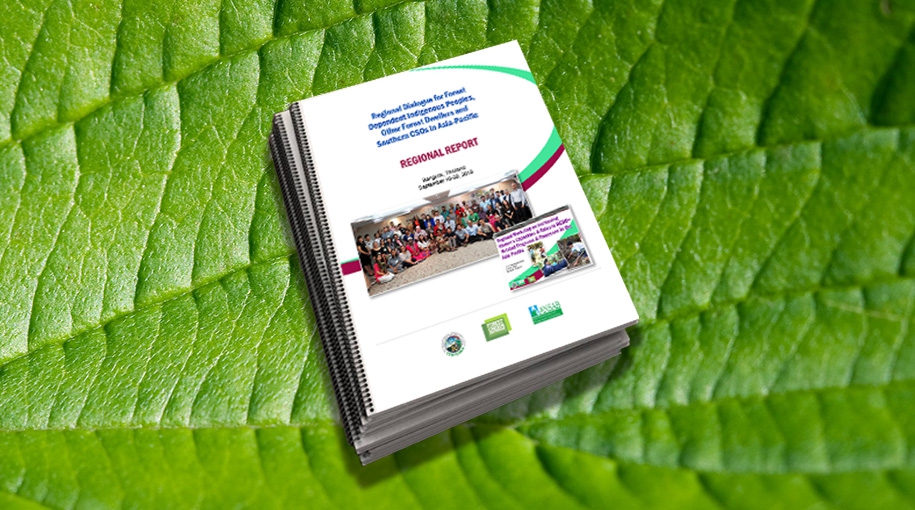The CBP had two phases of funding starting in 2009. In Phase 2, IPs organizations (IPOs) and CSOs from the three regions have been empowered as Intermediary Organizations (IOs) to channel financial and provide technical support to southern CSOs and IPOs selected by them from FCPF countries in their respective regions. The IOs in the Asia-Pacific Region are Tebtebba (Indigenous Peoples’ International Centre for Policy Research and Education, focusing on forest-dependent IPs) and the Asia Network for Sustainable Agriculture and Bioresources (ANSAB, focusing on southern CSOs).
Several capacity building initiatives have been funded under CBP Phase 2. Consequently, targeted forest-dependent IPs and southern CSOs have been demonstrating increased understanding of the subjects, and their visibility and participation in various country level dialogues have increased.
During the two CBP phases, it became evident that the impacts of climate change manifested differently in different regions and affected women in disproportionate manner. Although women in communities play an important role in conserving forests and they hold incredible accumulated traditional knowledge vital to identifying and adapting to the effects of climate change and conservation of the forest, they are often left out of decision-making processes involving natural resource management. The result is insufficient attention and integration of gender issues in national ERPs and REDD+ strategies. It was, therefore, concluded by the FCPF and country stakeholders that stronger efforts are needed to be made to increase women’s capacities and roles in REDD+-related programs and processes. To this effect, several gender analyses have been funded by both the CBP and the Global FCPF Gender Fund. These analyses have resulted in the development of gender-specific action plans with results indicators to be included as part of the ERPD designs and implementation in selected countries. However, it is recognized that much more work remains to be done on this front in order to ensure the effective participation of women, and to design programs which are gender inclusive.
The closing of the CBP called for a regional dialogue of forest-dependent IPOs and CSOs on lessons learned and best practices from the CBP implementation to-date and a discussion on future needs. This was also an opportunity to conduct in-depth discussions on how to better mainstream gender considerations into Readiness and ERP design and increase women’s participation and benefits from ERPs.
The Regional Dialogue, held in Bangkok, Thailand, was structured around regional summaries prepared by Tebtebba and ANSAB of their respective projects, including summaries of gender activities implemented to-date. It included the “Regional Workshop on Increasing Women’s Capacities and Roles in REDD+ Related Programs and Processes in the Asia-Pacific – a 2-day discussion on gender related gaps and actions on September 16-17, 2019, and the “Regional Dialogue for Forest-Dependent Indigenous Peoples, Other Forest Dwellers and Southern CSOs in the Asia-Pacific Region” – a 3-day discussion on lessons learned, gaps and recommendations of future actions on September 18-20, 2019.


